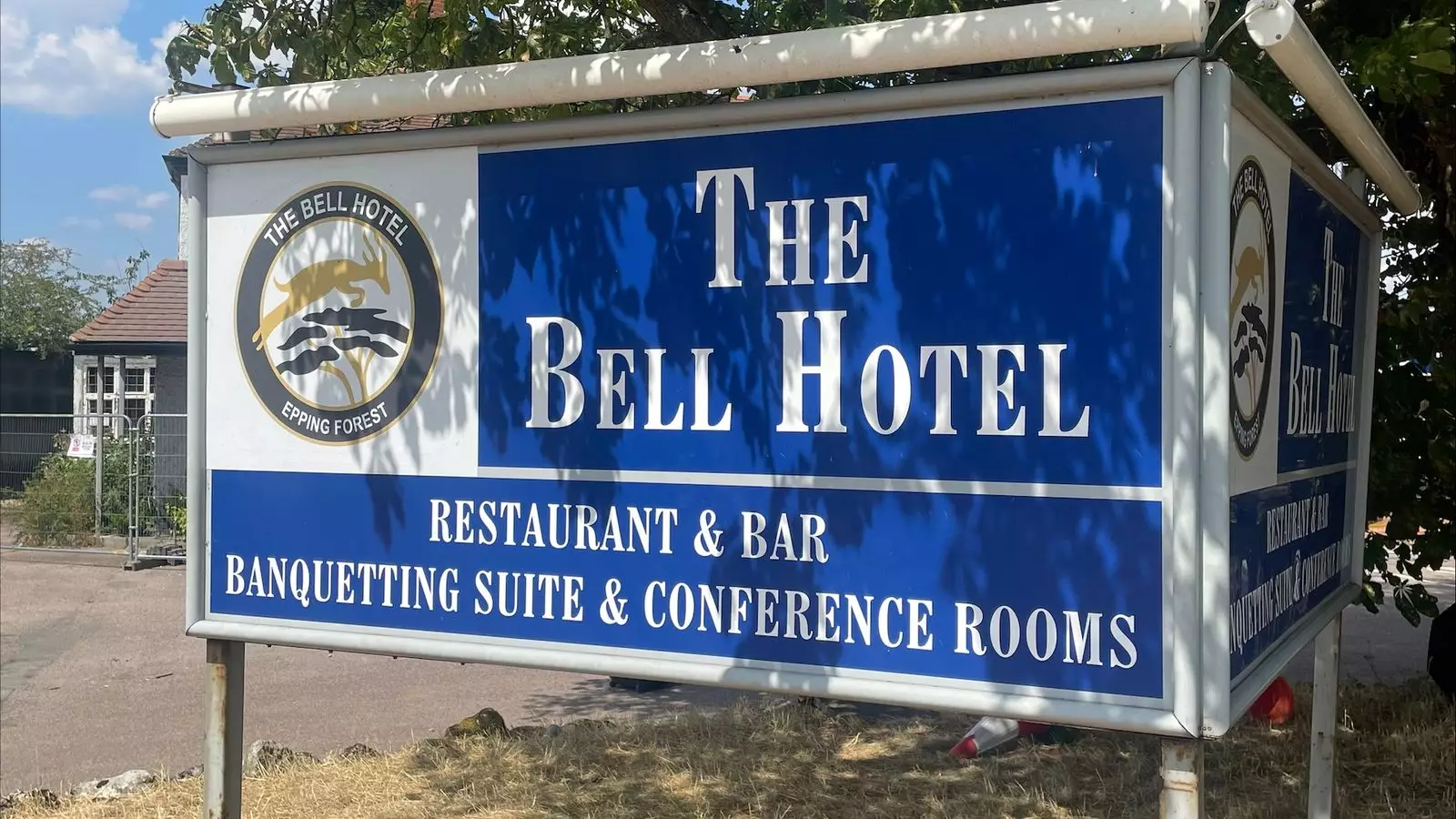The recent ruling against housing asylum seekers at a hotel in Essex reveals a troubling discrepancy between local governance and the broader moral responsibilities that come with managing migration. While the Epping Forest District Council claims to act in the best interest of its residents, their efforts underscore a deeper failure to grapple with the complexities of modern asylum policies. This is not merely about legal technicalities or property rights; it is an ideological battle over who gets to decide the social fabric of communities and at what cost. The council’s pursuit of a temporary injunction, coupled with their dismissive attitude about wider systemic issues, exposes their inability—or unwillingness—to address the social consequences of their policies in a nuanced, humane manner.
The council’s framing of the hotel as a site “no more a hotel than a borstal” reveals an underlying goal: to mark asylum seekers as outsiders, as something inherently disruptive to the local order. By framing migrants as threats or burdens, the council subtly reinforces a narrative that disregards their dignity and humanity. Their narrative is driven by fear—fear of the perceived “strain” on local resources—yet this anxiety appears to eclipse any consideration of the moral obligation society has toward vulnerable populations. The council’s decision isn’t rooted in genuine concern for community cohesion but rather in a desire to maintain a sanitized image of “local control,” displacing any meaningful engagement with the realities faced by the migrants themselves.
The Politics of Panic versus Compassion
The protests outside the hotel and the speeches claiming that housing asylum seekers causes “great anxiety” illustrate a broader political climate that traffics in fear. Political leaders, in pursuit of quick wins and placating their constituents, often exaggerate the disruptive potential of asylum policies. This approach relies on stirring anxieties and fostering division, rather than fostering the kind of empathetic dialogue necessary for tackling complex social issues. Piers Riley-Smith’s characterization of the hotel operations as “draconian” and “hardship” glosses over the fact that the true hardship is perpetuated by policies which deny basic human rights and compassion.
Moreover, the case underscores the dangerous tendency to weaponize legal technicalities—such as planning breaches or administrative lapses—to sideline moral responsibilities. The assertion that the hotel was used for housing migrants without proper planning reflects a failure to see beyond bureaucratic protocols to a moral imperative: ensuring basic protections for those seeking asylum. It’s not simply about whether a planning application was filed; it’s about whether our society can afford to treat human lives as collateral damage in administrative disputes. That the hotel served as a temporary refuge during a global crisis points to a broader failure of leadership: prioritizing property rights and local politics over human dignity and international solidarity.
Economic Incentives and Ethical Blind Spots
Financially, the hotel’s reliance on contracts to house asylum seekers reveals a troubling dependency on migrants as commodities—temporary fixtures to cover underused capacity rather than individuals with rights. The argument that these arrangements are a “financial lifeline” illustrates a commodification of human suffering, a stark deviation from the values of compassion and social responsibility. This transactional mindset reduces the complex reality of migration to a sterile economic calculation, ignoring the human toll and the moral obligation to support those fleeing hardship.
The fact that the hotel was only 1% full in August 2022 suggests that the economic incentives for hosting migrants are limited or casually dismissed in official rhetoric. If the accommodation of asylum seekers is truly beneficial or necessary, then obstructing their housing should not be justified by fears of administrative non-compliance or local inconvenience. Instead, we must ask: are our policies aligned with the fundamental principles of justice and inclusion? Or are they paralyzed by a narrow focus on “local interests,” which conveniently ignore the larger humanitarian responsibility?
The Fallacy of Local Sovereignty in a Global Crisis
This incident exposes the flawed assumption that communities should have unilateral control over immigration and asylum policy. In a world increasingly interconnected, local decisions cannot be divorced from international obligations and moral responsibilities. The council’s efforts to halt the housing of asylum seekers reflect a shortsighted nationalism—a dangerous retreat into insular thinking that jeopardizes societal cohesion.
The fact that the council plans to pursue a permanent injunction suggests that their stance is less about the immediate well-being of residents or migrants and more about political posturing and bureaucratic dominance. While local voices are vital, this case illustrates how local authorities often lack the capacity—and sometimes the willingness—to engage in the deeper ethical debates around migration. Instead, they default to legalistic arguments and public relations maneuvers that distort the reality of what it means to build a humane society.
Throughout this process, the moral failure is clear: by framing asylum seekers as a problem to be managed or an inconvenience to be dismissed, society reveals its own deficiency. The challenge now is whether political and community leaders will recognize the imperative to view migration not as a threat but as an opportunity—an essential facet of a just, compassionate, and forward-looking society that refuses to hide behind bureaucratic walls.


Leave a Reply